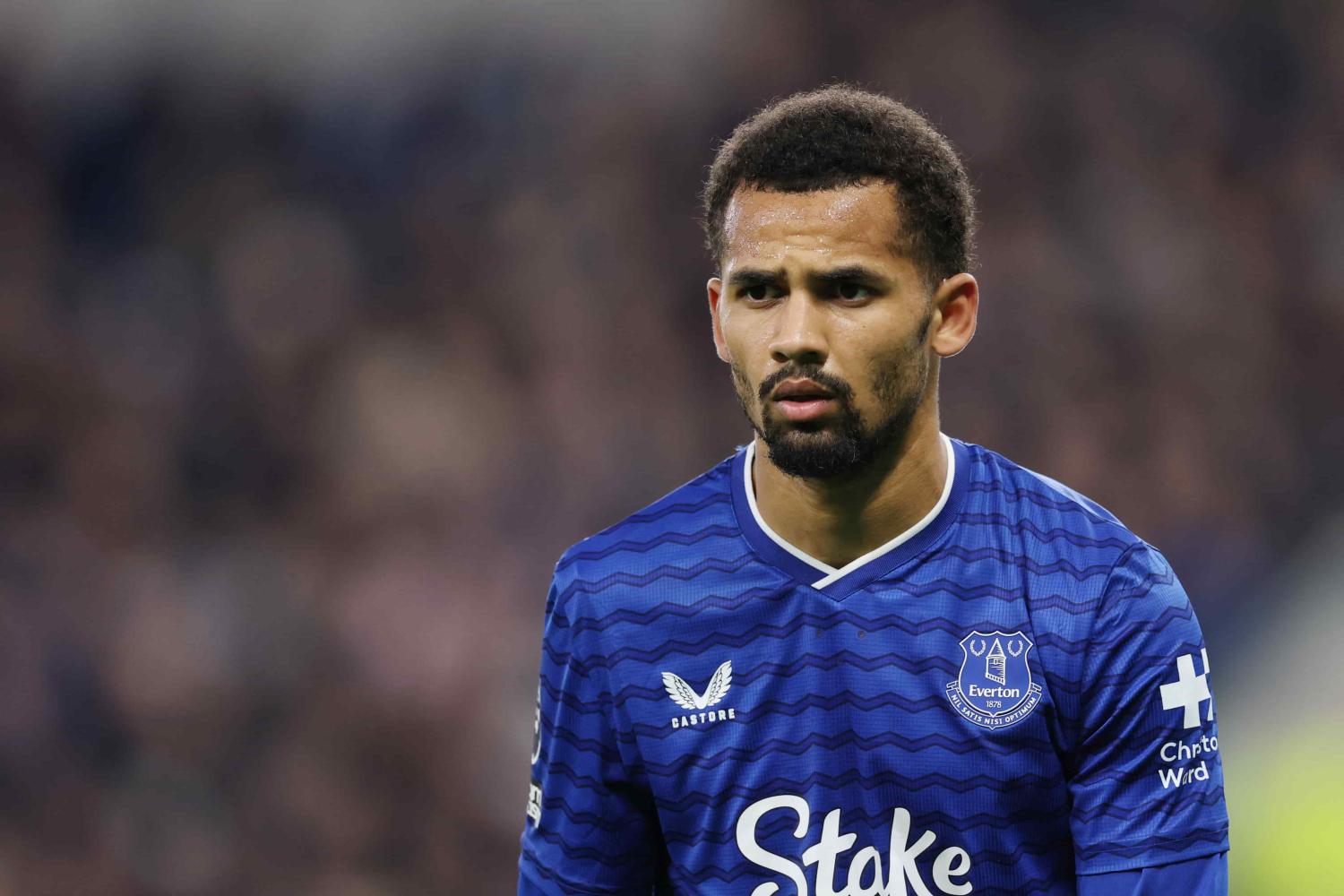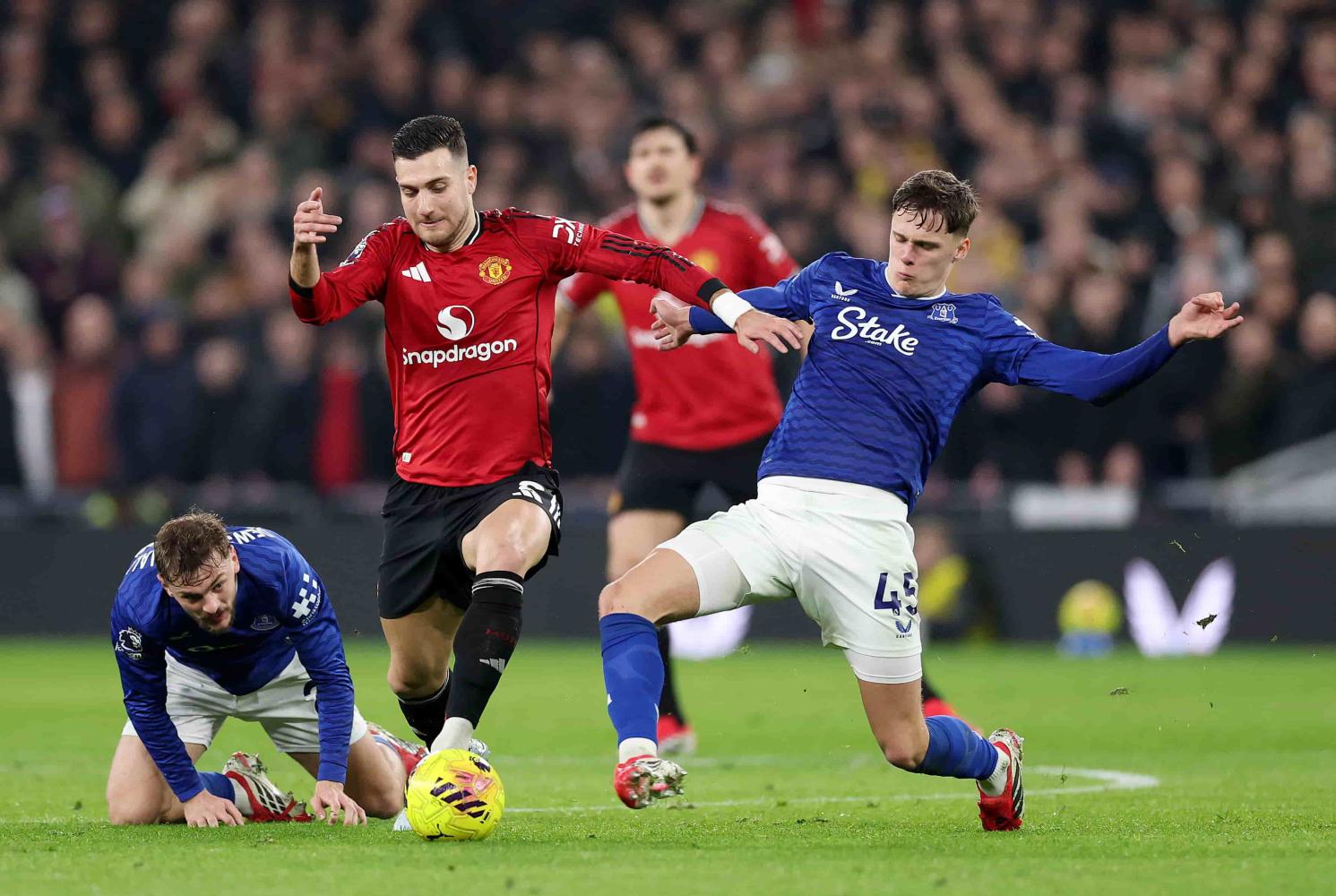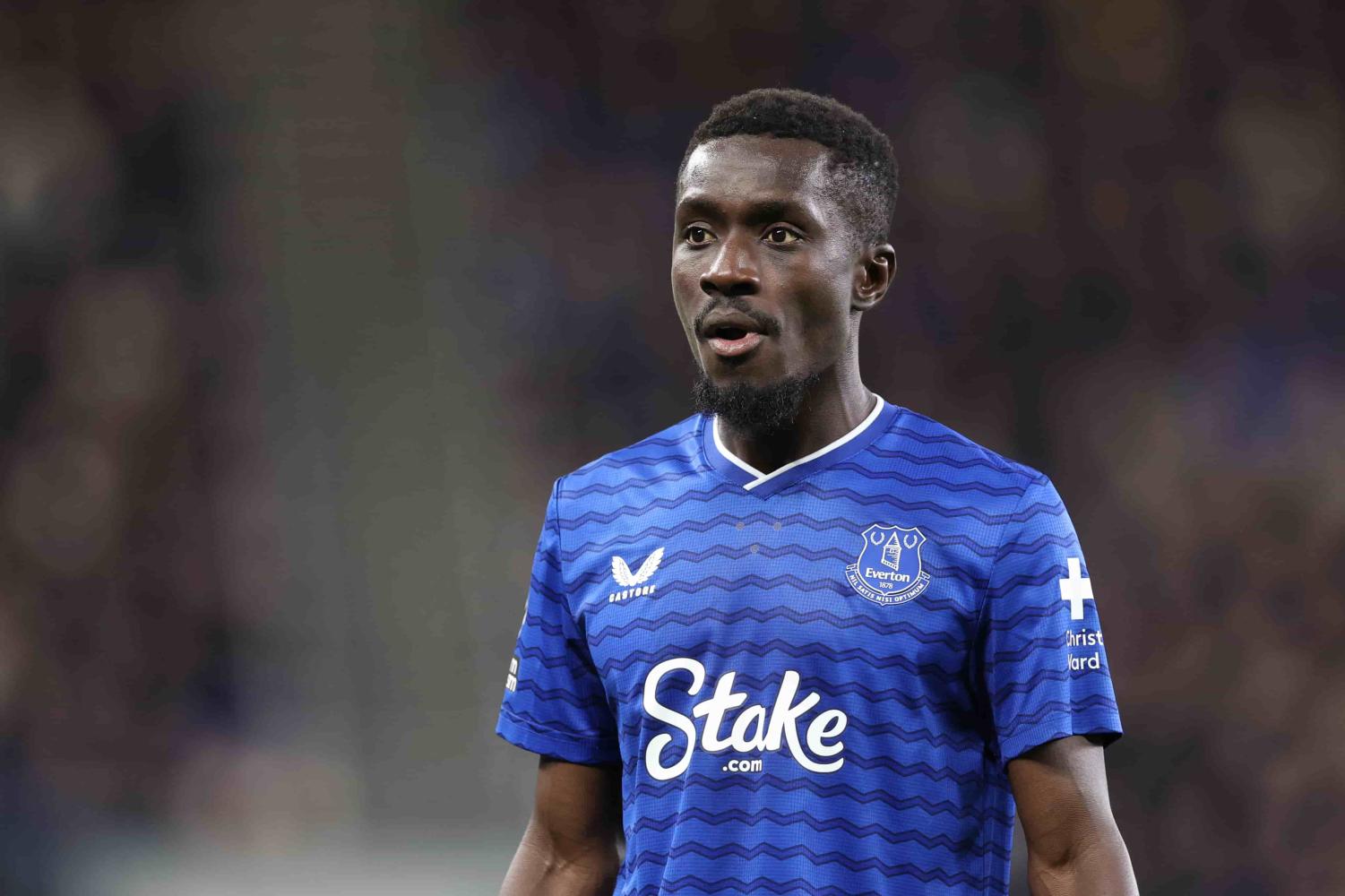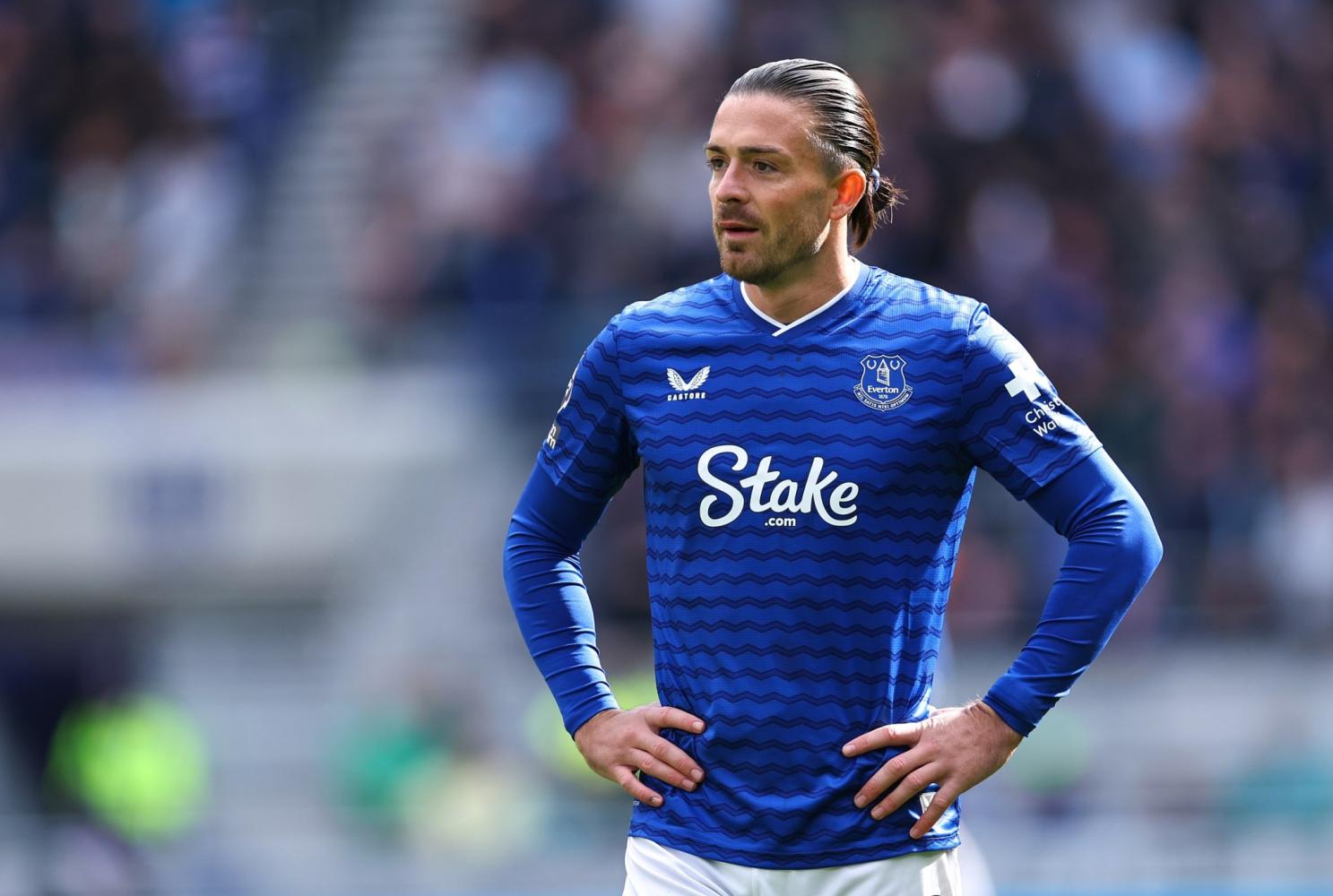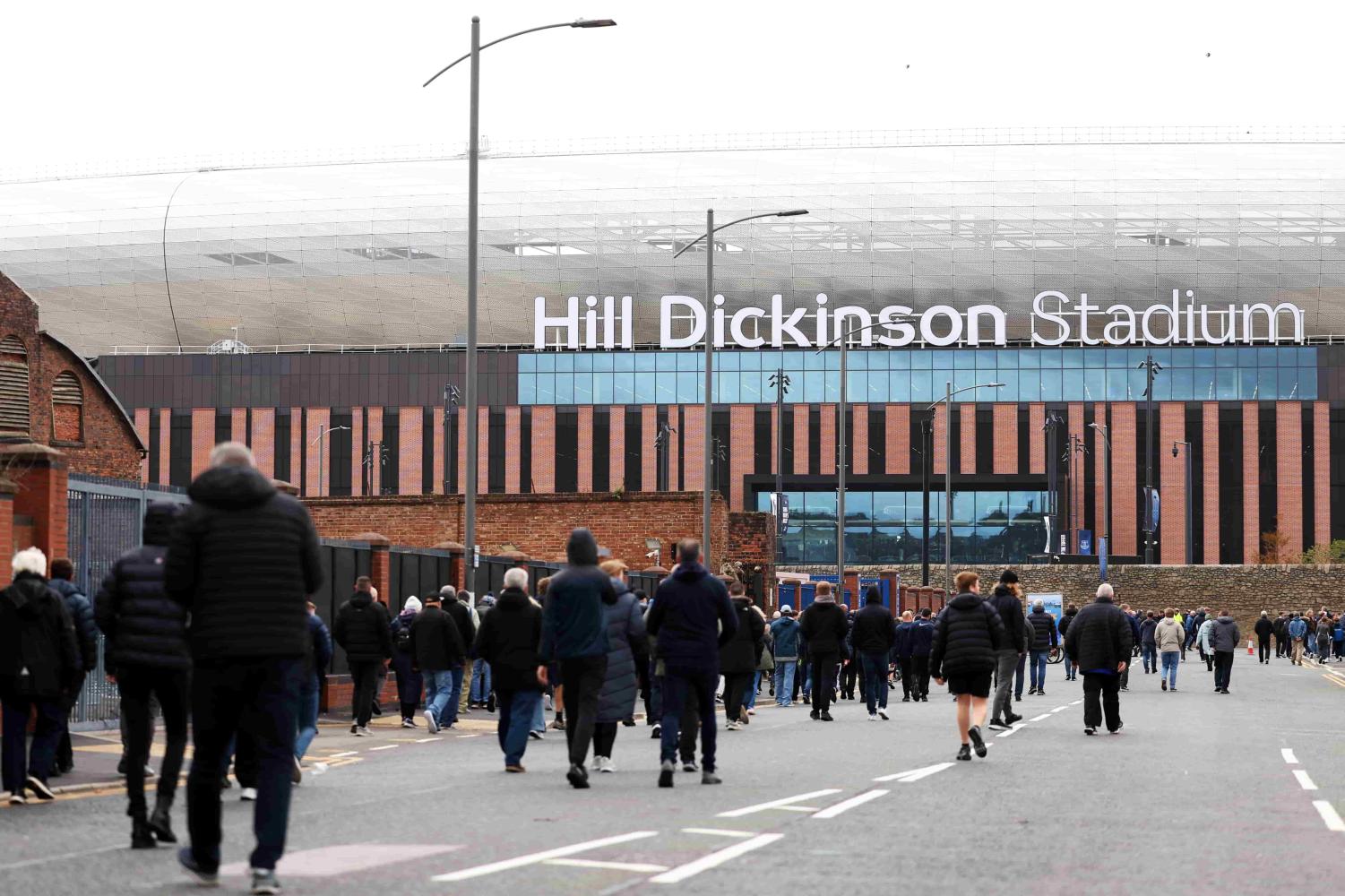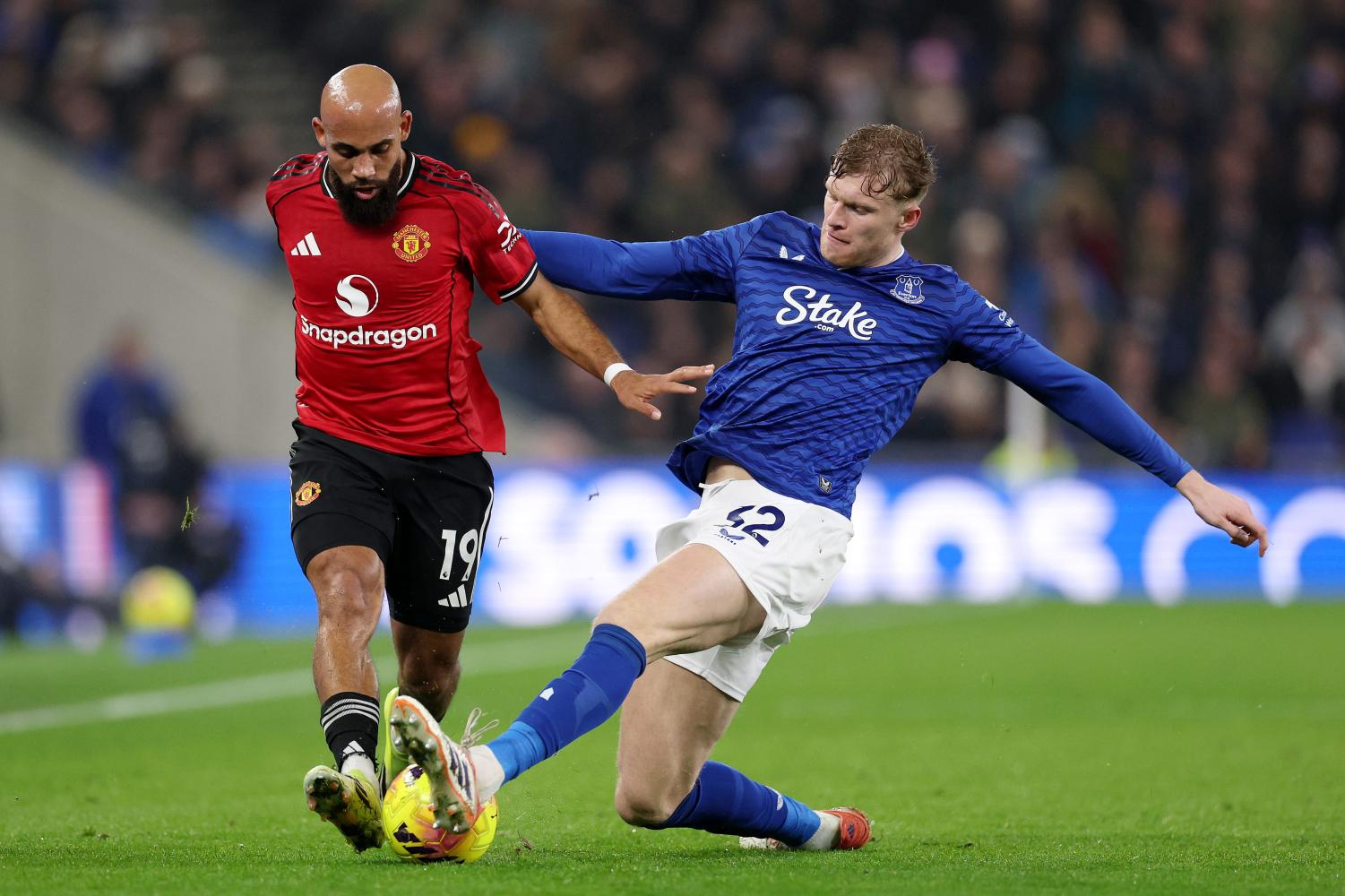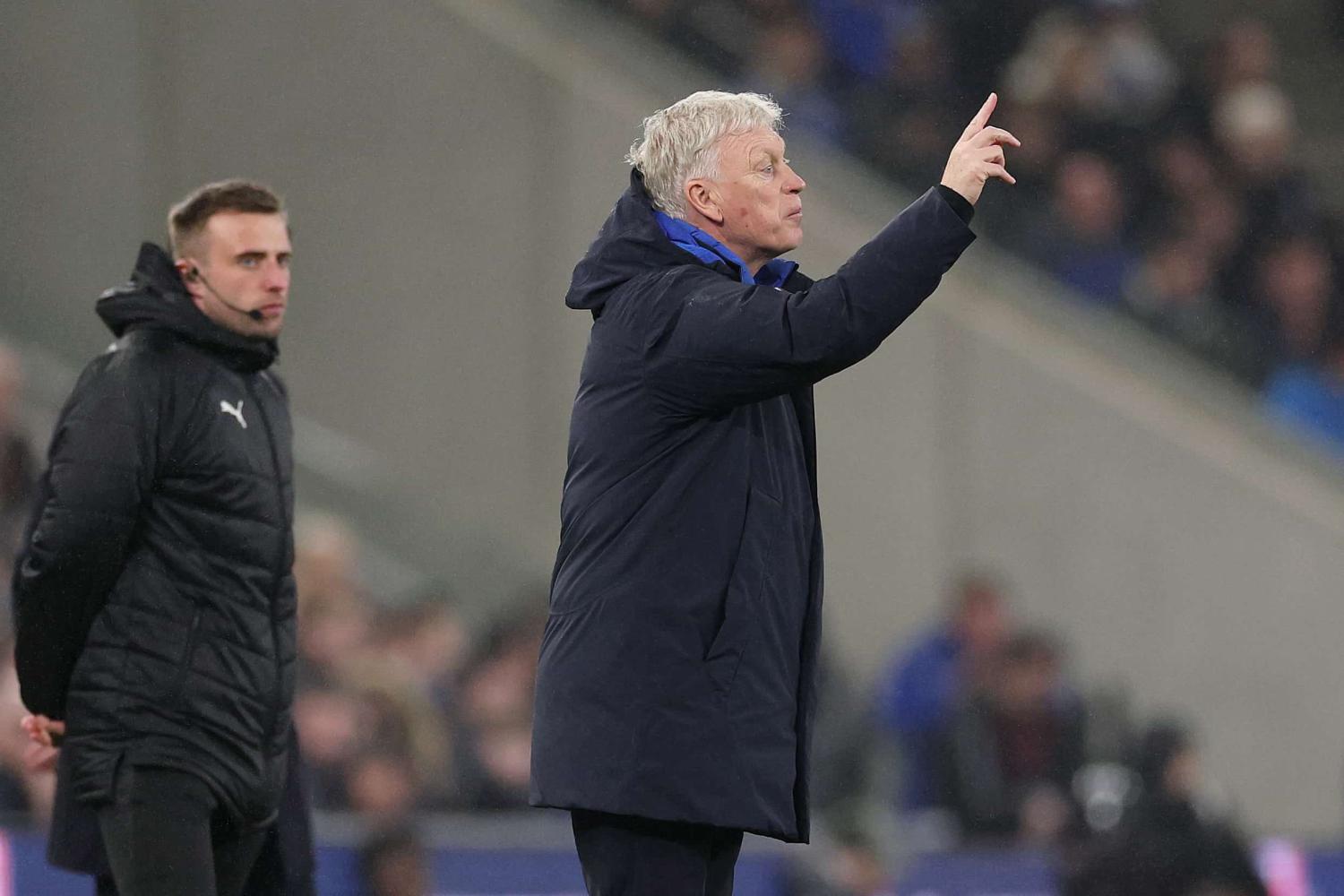Moyes Own Story (Part 2)
By transforming Everton's fortunes in less than a year, David Moyes has confirmed his reputation as the best young manager in the country. But how has he done it? In an OSM exclusive, Martin Baker, with unprecedented behind-the-scenes access to a week in Moyes' life, witnesses everything from the training-ground tantrums to Wayne Rooney in a towel
Monday
It'll be tough on the lad though
Thursday brings a welcome thaw, and a practice match at Bellefield. The players are warmed up, and Moyes tells them to be extra-competitive. He is concerned about the lack of match practice on turf. They go to work. Suddenly Moyes, who is refereeing, explodes at a keeper for rolling the ball out, as if in a five-a-side match. There is a white-hot volley of furious Glaswegian. The full intensity of his anger spits out in short, brutal words. The game slows, almost stops. The players glance in Moyes's direction. Then comes the calmer voice of direction and authority: 'You wouldn't do that in a match. Don't do it now.'
The afternoon is dedicated to studying videos of Southampton's tactics and the ever-increasing pile of paperwork. Moyes has agreed that some of his players can go and play in a 'bounce' game (an ultra-friendly, behind closed doors) for the benefit of his manager friend in Scotland. However, one of the Everton lads has a carbuncle on his neck the size of a duck's egg. The doctor insists that it's dangerous and it must be treated at once. Moyes calls the manager. 'He can't play. The boy's got a boil on his neck the size of what you used to have on your arse.'
Moyes ponders an invitation to be on They Think It's All Over. He doesn't really fancy it. 'I'm not that sharp,' he says. Irene thinks otherwise.
Rodrigo has sent Moyes a video of the rehabilitation in Rio. There is at first much hilarity as it is shown. But it is seen as at least a gesture that shows the lad is trying. And there was a stepping technique on the treadmill that might be useful.
The managerial team then pile into the Merc to go to Celtic v Stuttgart. Moyes has turned down an offer from Celtic's major shareholder Dermot Desmond to watch the game as his guest. He is frequently linked with the manager's job there and knows this would generate rumours. Instead he is a guest in the box of a successful Asian businessman with a Glaswegian accent as thick as your arm. The box owner is passionate about the game, and there's a good atmosphere. Moyes likes the look of a couple of Stuttgart players.
Moyes and the box owner disappear for a few moments. They return buzzing. They've just had a chat with Desmond. Given Desmond's association with J.P. McManus, Manchester United conspiracy theorists would have a field day. Celtic, having conceded a goal to 10 men, are winning 3-1 with 25 minutes to go. But Moyes and his men have their beds to go to. They trot through the car park to the Merc and are on the motorway in minutes.
'Well, they'll probably win it now,' says Lumsden in the back of the car.
'They probably will,' Moyes agrees from behind the wheel. But the verdict is that Stuttgart were technically very good and fought hard. In short they were unlucky.
In the car there is the kind of banter you get among any football enthusiasts returning from a game. 'Which is the only British forward to have played in three World Cups?' Lumsden asks.
The question keeps the rest of the car amused from the northern Borders to south of Penrith when, after much deliberation, we plump for Joe Jordan - the right answer.
There is much England-Scotland banter, which prompts a question already being asked in football circles: would Moyes ever take the England job? He says no, he's a tracksuit manager. Besides, he adds with a grin, 'I couldn't manage England. I'd never be able to go home again.'
The discussion turns to tactics. Irvine has seen some formations and tactical gambits used by Juventus that interest Moyes. He says that's exactly why you have to go to games. You don't get the benefit just from watching the director's visual take on television.
An Everton midfielder comes under discussion.
'The boy's got great talent,' Lumsden says.
'He has. And he'd have been in my team until today,' Irvine replies.
In training that morning the player had jumped into a tackle he was unlikely to make, lost it, and the opposition ran upfield and scored.
'Yeah, I couldn't believe it,' Lumsden concurs. 'Massive hole there.'
Another player has a great strength - the ability to blend better with others who undoubtedly have more raw talent.
Moyes listens to the conversation as we bullet into the black Pennine night. He decides to leave an outstanding player on the bench for reasons of balance and blend.
'It'll be hard on the boy, though,' says Lumsden.
'Aye,' Moyes says, eyes fixed firmly on the road, 'it'll be hard.'
Friday
'I'm certainly a lot younger than Gordon'
Lumsden joins Moyes in the Merc to Bellefield having stayed overnight with David and Pamela. The Southampton game tomorrow dominates conversation. Moyes has been emphasising the size of the team all week.
'We're in the land of the giants here,' he tells Lumsden. 'We'll have to be very careful at the set pieces. They've five or six big men.'
At the training ground, Irvine and Moyes again study videotapes of Southampton corners and free-kicks. Today's the day when he will drill them on what to expect from their opponents. He's been talking about Southampton to the players on and off all week. Now for tactical instruction.
The morning session starts with lots of shuttles, followed by possession work and the traditional Old v Young training match. Moyes is the referee, which is just as well as the fixture generally has a bit of needle to it: the veterans needing to continually reassert their prowess over the younger generation. But the little edge, just before a game, is a good thing.
The Old, with veterans such as Brian McBride (29) and Kevin Campbell (32) go five up before The Young grab a consolation. There's an air of triumphalism about The Old that The Young don't like. Right-back Tony Hibbert is off his game, perhaps feeling the injury he's been nursing for a while. He complains as Tomasz Radzinski claims the fifth. Rooney misses a good chance for The Young, and is ribbed by the players. 'Nice one, Wayne.'
'He is human, you know,' Lumsden tells me. A few minutes later Rooney makes amends with a fine finish. The team is not announced, but it might as well be because the starting eleven are taken off to work on attacking and defensive tactics. The rest of the squad trains elsewhere while Moyes and Irvine work on what they've gleaned from the videos and analysis from chief scout Robbie Cooke. Moyes has had Southampton watched several times, and seen them himself recently. Cooke has prepared a dossier of tactics, key players, and set piece moves. The paperwork is backed up by video footage.
There is a session on defending corners and free-kicks. Southampton have a habit of putting their big men in a straight line and attacking the ball simultaneously. Moyes offers tips on how to impede without technically obstructing. He works the team for an hour or so, then sends them to the showers. Pistone stays late, working on his 'dinking' technique for big forwards. Ferguson stays and helps.
After training Moyes deals with the press. Sky, then local radio, though there are relatively few national newspapers. Then comes a local television question about Gordon Strachan, the Southampton boss. 'Two young Scots managers, how do you feel?'
'I'm certainly a lot younger than Gordon,' Moyes replies. He should take the television invitation. The press ordeal complete, Moyes endures another, forcing himself to run five kilometres on the treadmill. 'That felt like a million miles,' he winces afterwards.
Lunch is broccoli soup, the best dish of the week, eaten in Moyes's office, where the diagrams of Southampton's attacking and defensive corners are strewn across the ground. On the journey home Horton calls to say thank you. The Port Vale loan has gone through.
By five o'clock Moyes is home, and the family gather for the photoshoot for this article. Moyes's son David is an avid Preston fan, plays for the club's academy and burst into tears when his dad took the Everton job. He's now a Bluenose who also goes to Deepdale.
Both children go to local state schools; the question of educating the kids privately never arises. Bearsden may be an affluent suburb of Glasgow, but private education goes against the Moyes family grain. It is not a question of class politics. Simply that both Pamela and David pride themselves on their matter-of-factness, the ancient Scottish virtue of plainness. The children will do as the parents did. Which perhaps explains Moyes's only apparent reservation about the upbringing of the children: young David has a Preston accent.
Saturday
'A cross between David Pleat and Barry Fry'
Matchday, Everton v Southampton. Moyes arrives at Everton's Goodison Park ground at 10.15, in plenty of time for the 12.30 kick-off. Everything is in place, ready for the day. There is surprisingly little to do on matchdays, though when the kick-off is the normal three o'clock Moyes tends to get to Goodison in even more time, usually by noon. There is already a buzz about the place and by eleven the players are already in the dressing room, just next to the manager's office. U2's 'Where The Streets Have No Name' blares out from behind the closed door. Is this part of the psyche-up? Moyes insists that they're already motivated. The management team gets changed, amid much hilarity when a continental breakfast of croissants and fruit is brought in. These men are earthed to their Glaswegian roots.
At ten past eleven Moyes goes to talk to his team. His face is fixed and focused as he closes the dressing room door. The music still blares out, but there is no sound of chest beating or the thump of studs on the floor. He will do whatever it takes to get the team's mood right. Sometime he fires them up. At other times he uses subtler methods as he seeks to inspire. At Preston, he once played a soundless video of the last three minutes of the Manchester United-Bayern Munich European Cup final. He then turned to his players. Do they want to be Sammy Kuffour, the Bayern defender who was beating the ground at the end? Or do they want to share the elation of the United players?
On another occasion, he wanted calm and order. He played the team two consecutive recordings of Mozart's Piano Concerto No 23 in C major. They went out and beat West Brom 1-0.
But when the game kicks off it is the visitors who have the better of the early stages. Despite all that eagerness for match practice, Everton are a bit rusty. Moyes prowls the touchline, and throws his hands down in disgust as James Beattie scores a well-taken goal. Strachan sits in the stand near his chairman, Rupert Lowe.
By half-time it is clear that Everton are second best, and Moyes disappears down the tunnel before his players, his face an intense mixture of frustration and fury.
What happens in there, Moyes insists, must remain confidential. The dressing room door is the ultimate inner sanctum. He does admit later though, that, 'I didn't do anything particularly weird or wonderful' - and for all his steeliness, he is not a hurler of tea cups. But it is fair to assume that he forcefully reminds his charges of the training drills and the planning and the absolute need for full commitment.
For the the second half Strachan joins Moyes on the touchline, and the two begin snapping at each other, the embodiment of their media cliche as Scottish terriers. Everton are much, much better but with 20 minutes left still haven't scored. Moyes decides to bring Rooney on. A giant roar greets the youngster's appearance on the touchline. The desire, the expectation, is frightening.
Everton continue to dominate, but still no goals. Then, with four minutes left, Rooney creates space down the left, and sends over an exquisite cross which Radzinski heads in: 1-1. Goodison erupts. Three minutes into injury time Radzinski hits a superb winner and Everton's unlikely comeback - something of a trademark under Moyes - is complete.
On the final whistle Goodison is a blue and white earthquake, with Moyes's celebration almost as uninhibited as that of the fans ('I was a cross between David Pleat and Barry Fry,' he says later). It takes five seconds before he turns to the directors' box and greets his family, and Bill Kenwright, the Everton chairman, in the row in front. At the end of the game Moyes insists that his players greet the fans.
After the match Kenwright is very, very happy. A theatrical impresario, he is a lifelong Evertonian who has long dreamt of playing a part in restoring the club to its former glories. He cannot be blamed for believing that by appointing Moyes he has made a crucial move in that direction.
Goodison below stairs: everyone is ecstatic. For the professionals victory is everything, but when earned in this manner it is truly exquisite. Beers are opened, though Moyes is not a big drinker at all (he liked to have a few drinks every now and then, he told me earlier in the week, but 'nowadays it has to be with other managers, behind locked doors'.)
However there is little time to savour the triumph with his team, because of the extensive media duties: telly, radio, telly... then upstairs for the newspaper hacks. Thirty-four of them. Back in the manager's office finally, the Southampton managerial team are there, without Strachan, their leader. Sky Sports is on the television, and everyone monitors the running scorelines as they sip drinks and nibble sandwiches. Pamela and the kids are there. Eventually, Strachan arrives. He apologises for being so late.The conversation is cordial, but brief.
The car park an hour after the final whistle is still awash with emotion. Seagulls circle in golden light and a pure blue sky. Young boys - Rooneys or, more likely, scallywags, in the making - play on the Tarmac. They may never play on the turf, but they've played football at Goodison. Kenwright leaves, still smiling.
Eventually, the Merc nudges through the mild riot of adulation, and purrs down the street beneath the electric blue gaze of a giant Dixie Dean, emblazoned on a gable end mural. The scallies watch the car until it is swallowed up in the traffic on Walton Lane. David Moyes, the keeper of their dreams, finally disappears. They turn back to their scuffed football. The game resumes.
Postscript
The victory over Southampton was Everton's last before today's game against Newcastle, though they have only played three matches since - draws at Middlesbrough and at home to West Ham, and a 2-1 defeat to Arsenal at Highbury (when Moyes was particularly frustrated to concede a goal to a corner in the first five minutes, having spent the morning practising defending against set pieces). Everton remain comfortably in the top quarter of the Premiership, though, neck and neck with Liverpool, who come to Goodison in a fortnight's time.
Moyes's outlook remains resolutely pragmatic. 'We're going into the end of the season with Europe firmly in our sights,' he tells me, 'which is pretty incredible when you think of where we've been recently. I'd like to think a Champions League place is possible and that's certainly what we're going for, but maybe the Uefa Cup and the top six is more realistic.'
Rodrigo, meanwhile, did return to Merseyside shortly after the Southampton game. He is not expected to play before August.
© The Observer, Saturday 5 April 2003

